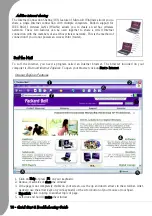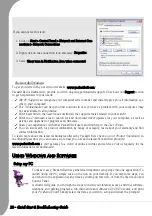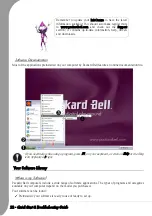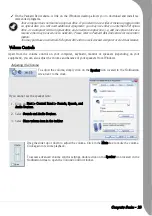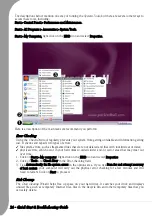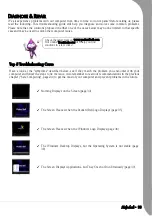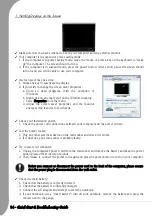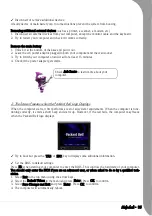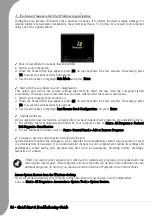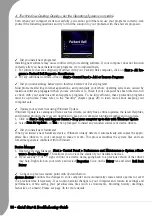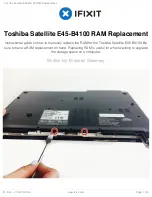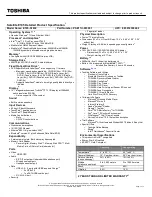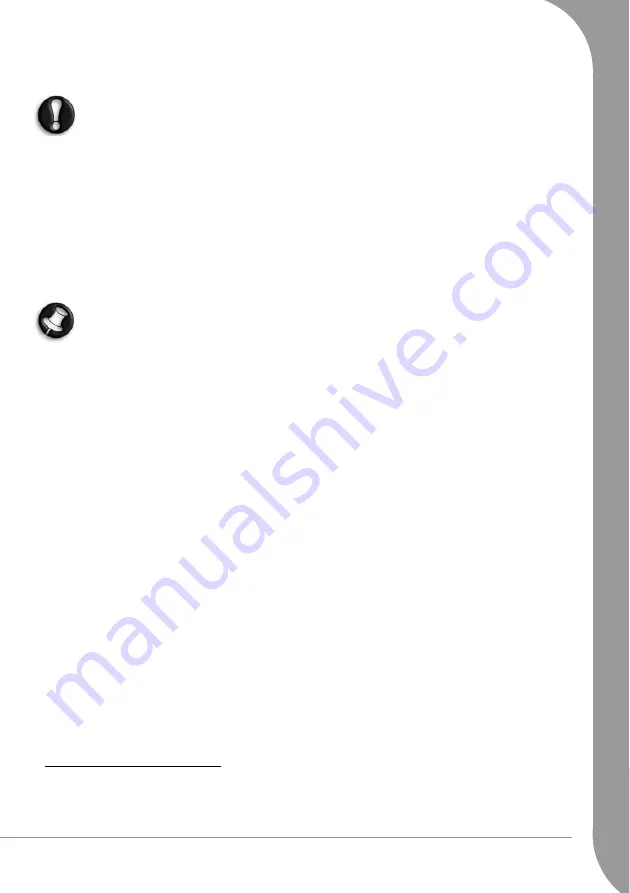
Helpdesk -
29
not connected to the Internet an antivirus program can be useful as a virus could be transmitted via
pirated software, removable disks or over a local network.
Please note that most antivirus programs require a subscription after an “evaluation period”. We
strongly recommend that you subscribe to such programs in order to get antivirus updates after this
limited period.
What to Do if I Find a Virus?
If your antivirus has identified viruses, it will display instructions to remove them safely from your system.
If a virus is found on a file before it is opened, simply delete the infected file. Make sure you also delete it
permanently from your Recycle Bin.
• If the virus has overwritten some files, you need to delete these files. You can only restore these files if
you have previously made backups.
• Notify everyone in your address book or anyone you may have shared files with.
• If the virus is in the memory of your system, you may need to perform a recovery.
Packard Bell guarantees that your computer was 100% virus free at the time of purchase and does
not cover damages due to viruses.
Tips to Avoid Viruses
Download from trusted Websites: If you download a file from a Website, make sure it is from a legitimate
and reputable source. If you are uncertain, you can download the suspicious file on a removable disk and
then scan it for viruses.
Beware of e-mail attachments:
• Do not open any attachment if you do not know the sender or are unsure about it. Even if the e-mail
comes from a trusted source, always exercise extreme caution with file attachments.
• Save the attached files on your computer (for instance in
My Documents
) instead of opening them
directly from your mailbox.
• Never download or execute a file attached to the e-mail. Always scan the files for viruses before open-
ing them.
• Never open attachments with double file extensions (i.e. "picture.bmp.exe" or "list.txt.vbs" and con-
taining file extensions such as ".vbs", ".shs", or ".pif"). These extensions are used by some programs, but
rarely in documents attached to e-mail (if so, chances are that they host viruses).
• Do not trust the icons of the attached files. A familiar icon can in fact be a disguised malicious file
(make sure you check the extension).
Delete junk e-mails: Do not forward any chain e-mail! If you are unsure about a virus warning contained
in a chain e-mail, then check one of the many Websites posting updated information on hoaxes. Do not
open attachments in unsolicited commercial e-mails, and do not click on hyperlinks contained in these
advertisements.
Make regular backups: If you make regular copies of your personal files and store them in a safe place,
you won't lose any valuable data in the event that a destructive virus infects your computer.
Secure your Internet Connection
What is a Personal Firewall?
A personal firewall is a software program designed to prevent unauthorized access to or from a private
network. It acts as a shield to protect your Internet connection from unwanted connections, some of
Summary of Contents for EasyNote XS
Page 1: ......




